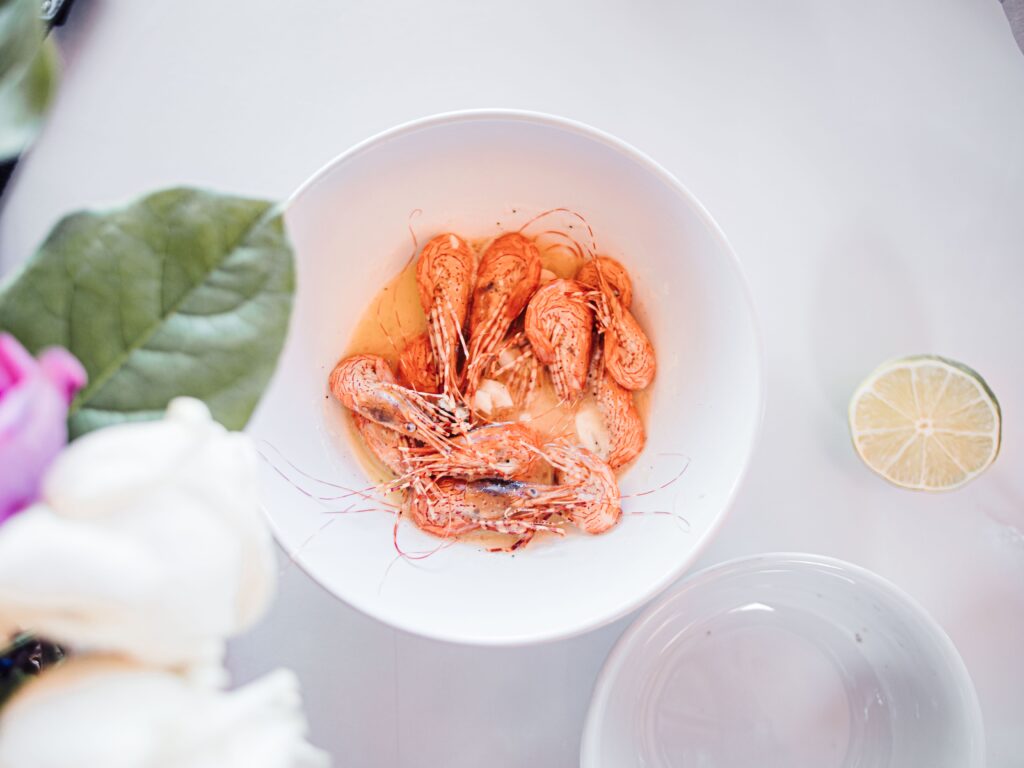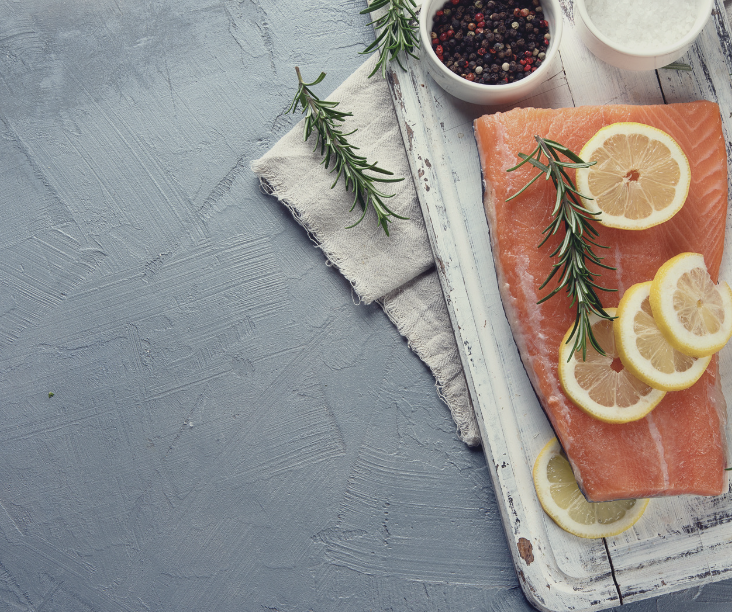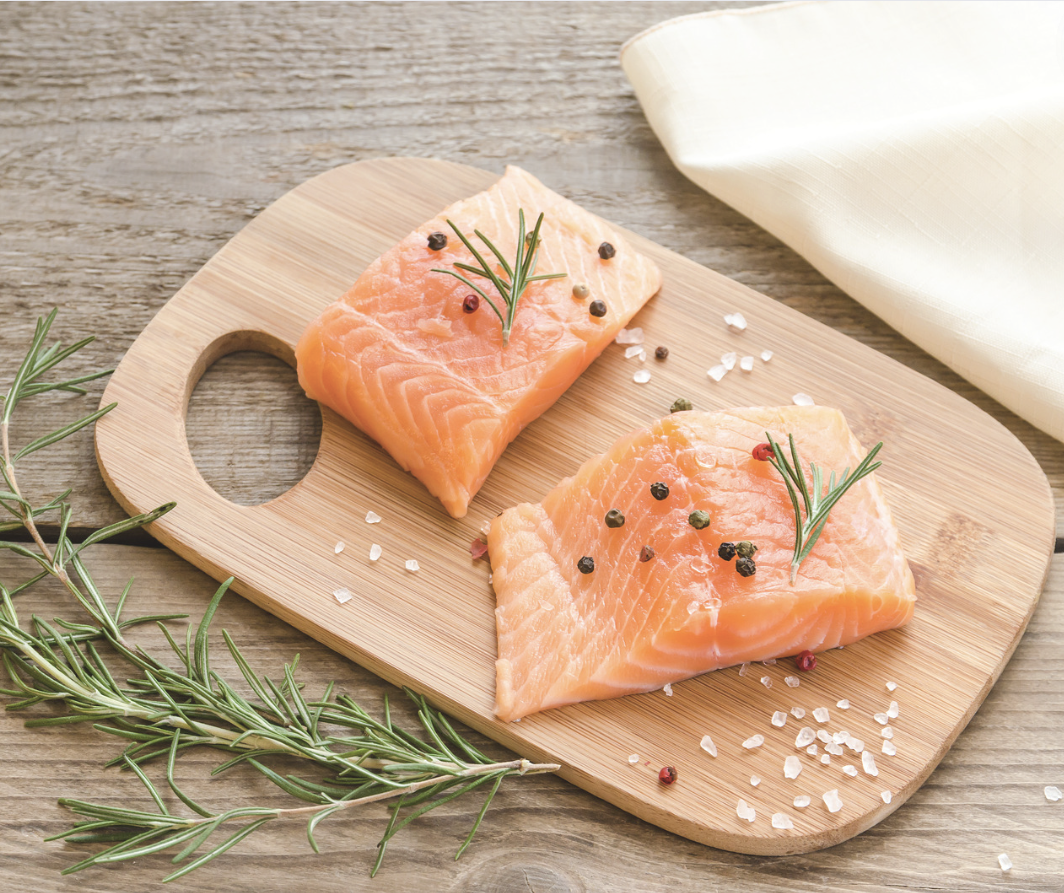A common question I am often asked is whether it is safe to eat fish during pregnancy. While generally my answer is yes, it also really depends on the type and the preparation.
So let’s break it down and keep it simple. I’ll be answering all your questions on fish consumption during pregnancy below.
First thing’s first – Can I Eat Sushi?
The risk of sushi during pregnancy has less to do with fish as a food source, and more to do with the risk of foodborne illness.
During pregnancy, the goal is to try and mitigate risk of illness – while our body can normally handle a little fever or food poisoning, our growing baby’s immune system is not quite as strong and has a greater risk of being impacted by an otherwise harmless condition.
This is why during pregnancy we want to limit our exposure to foods that increase the risk of food illness. So what does this mean practically?
That we limit our consumption of raw proteins and foods that easily spoil or carry bacteria. It’s the same reasoning for why pregnant women shouldn’t eat raw eggs or unpasteurized milk. Read more about foods to limit during pregnancy here.
So when it comes to sushi, the safest choice is to avoid it. The freezing and thawing, shipments, and lack of heat makes it a potential breeding ground for bacteria.
However, that doesn’t mean you have to sit out on all your favorite sushi night dinners. Some pregnancy friendly sushi includes:
- Vegetables rolls
- Cooked fish rolls (i.e., tempura rolls, cooked shrimp, etc)
- Tofu rolls
- Many eel rolls (just check with server to be sure).
Okay, But Is All Cooked Fish Okay To Eat Then?
Not quite. The other hazard when it comes to fish is mercury, a heavy metal that can accumulate in the body and impact baby.
When it comes to mercury and all heavy metal exposure during pregnancy, we want to try and keep our exposure down.
We do this by avoiding high mercury fish. This often includes fish that are larger, such as
- Albacore, BigEye, Ahi, Yellowfin tuna
- Swordfish
- Orange roughy
- King mackerel
- Shark
- Chilean Sea Bass
- Perch
- Grouper
Hmmm So Wouldn’t It Be Safer To Avoid All Fish?
Not at all.
The benefits of fish consumption actually greatly outweigh the risks. One study on maternal fish consumption and neurodevelopment found that mothers that consumed >12 oz. of fish per week while pregnant had children with higher IQs and communication skills compared to those that ate none. This is even in light of the fact that the high fish consuming group also ate more mercury. This just goes to show that the benefits of fish on brain development, along with the selenium content (which can bind to mercury), is incredibly beneficial to baby in utero.
Wild fish is an incredible source of protein, iodine, selenium, B12, and healthy fats, all of which are important for baby.
Most notably, fish is high in something called DHA, a type of omega-3 fatty acid that plays an essential role in baby’s brain and eye development, impacting everything from cognitive function to learning ability. In fact, during the last 3 months of pregnancy, baby accumulates 67 mg. Of DHA daily! Since our body cannot make DHA naturally, during pregnancy we need to make sure we are staying on top of our DHA intake so that both mama and baby can thrive.

So What Are The Best Fish To Consume?
Cold water wild fish will have the most brain boosting levels of DHA.
The best sources that are also lowest in mercury include…
- Salmon
- Sardines
- Anchovies
- Herring
- Bivalves like clams
all of which are also low in mercury. For more information on low mercury fish, I recommend using this pocket guide produced by the FDA.
For more info on food sources and serving sizes of DHA, check out this.
Other sources of fish that are rich in nutrients but should enjoyed a bit more modestly (1 x per week) due to its mercury content includes seabass, cod, halibut, and canned chunk light tuna.
Wait, There Are Different Types Of Tuna?
Yes ma’am. And the type of tuna greatly impacts the level of mercury.
While some types of tuna are not recommended during pregnancy, some can be enjoyed modestly (1-2 times per week). The most pregnancy safe types of tuna are labeled “chunk light” or “skipjack” tuna. You can typically find these options canned or jarred.
I also recommend choosing ones that were sustainably caught. Look for these terms:
- pole and/or line caught
- troll caught
- FAD-free
- free school
- school caught
or look for for a “Certified Sustainable Seafood MSC stamp.”
What About Wild vs Warm Raised? Does It Really Matter?
Wild is always the better choice. Farm fish often contain contaminants, such as PCBs, dioxins and other chemicals that can act as endocrine disruptors and potentially harm mom and baby. Wild fish farms have also been shown to have antibiotics, (read more about that here & here) leading to issues of antibiotic resistance.
Plus, wild fish is higher in DHA and many other minerals like iodine, and is often times better for the environment.
If you are going for a farmed fish, take the time to investigate the farm and its conditions. You can also look for ones that are certified with a Seafood Watch stamp, either “Farmed Responsibly ASC Certified” or “Certified Sustainable Seafood MSC.”
If you need a little bit of help navigating the fish-sustainability-ethically raised fish connection, I recommend using the Seafood Watch guides that are broken down by area.

Okay So How Often Should I be Eating Fish?
Generally speaking, it is recommended to have low-mercury fish 2-3 times per week in 4 oz. servings (or a total of 12 oz per week).
However, I’m a believer that this really depends on your diet and where else you are getting in protein, DHA, iodine and many of the other minerals that fish has to offer. If you’re interested in individualizing your diet during pregnancy, you can book a discovery call here.
What If I’m Not A Fish Person?
For anyone who is open to eating wild salmon, anchovies, or sardines, I highly recommend it. But if it just doesn’t work for you, then you may want to consider a fish oil supplement that fits these standards:
- uses one fish source
- wild caught
- in a triglyceride form
- preferably from a cold water fish
Not into fish supplements? Try to find a high quality algae supplement instead that offers both DHA and EPA (two types of omega-3 fatty acids).
The Takeaway:
Fish can play an important role in a prenatal diet. The general rules of thumb to follow are:
- Avoid raw/uncooked fish (sushi, ceviche, tartar, smoked or cured fish unless baked into foods)
- Choose low-mercury, wild fish
- Put a little extra emphasis on salmon, sardines, and anchovies
- Enjoy fish and all it has to offer
Written By: Amanda Wahlstedt, RDN

share this post >>
share this post >>